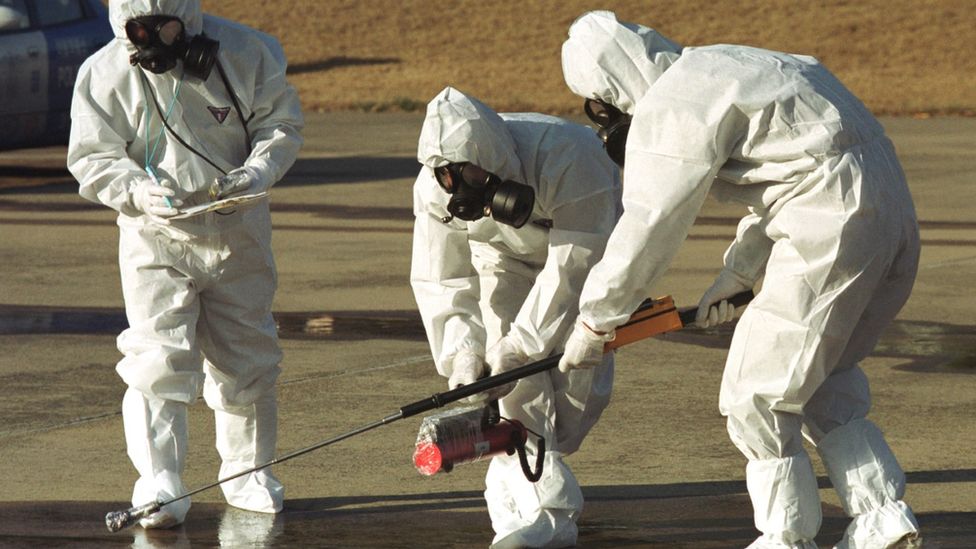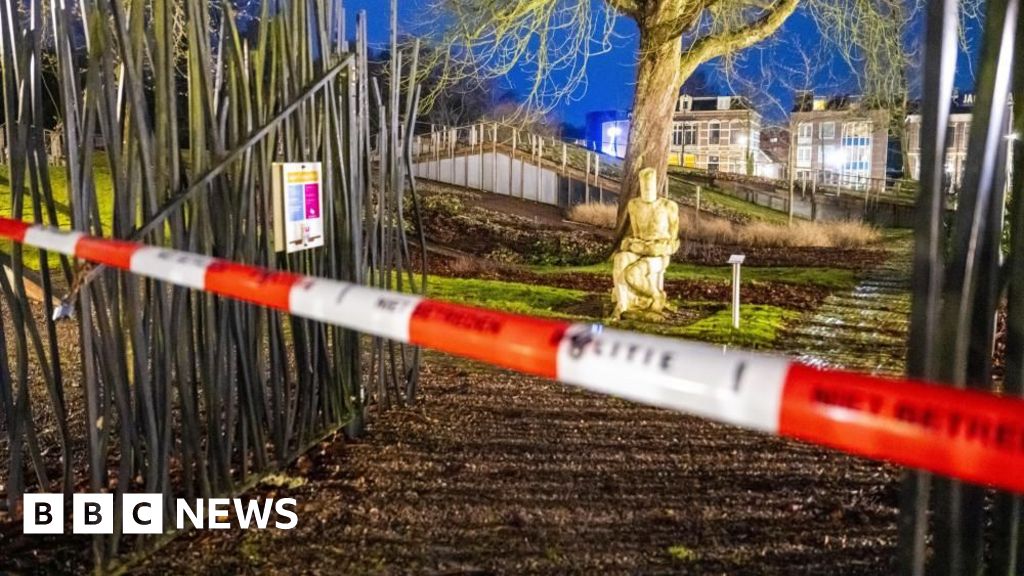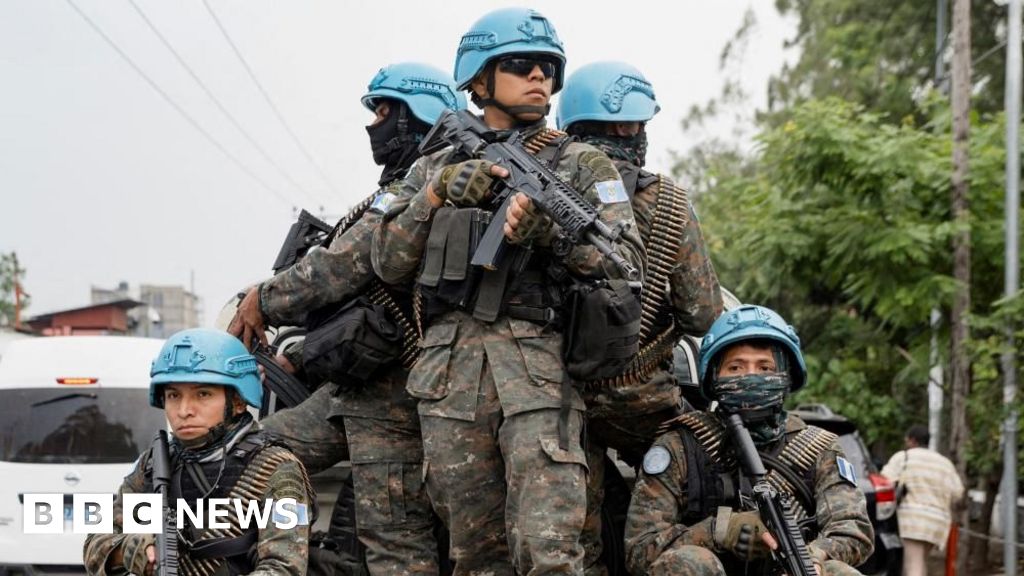ARTICLE AD BOX
 Image source, Getty Images
Image source, Getty Images
Russia's defence minister has claimed Ukraine might use a "dirty bomb" - a device containing radioactive material as well as conventional explosives.
He has not offered any evidence, and Ukraine - as well as France, the UK and the US - has dismissed the allegations.
What has Russia said?
Sergei Shoigu told the UK's defence secretary, Ben Wallace, that he was "concerned about possible provocations by Kyiv involving the use of a dirty bomb".
He has also spoken to defence ministers in the US, France and Turkey, making similar comments.
Image source, Getty Images
Image caption,Russian defence minister Sergei Shoigu has raised fears, without evidence, that Ukraine plans to use a dirty bomb
In a joint response, France, the UK and the US said their governments "all reject Russia's transparently false allegations that Ukraine is preparing to use a dirty bomb on its own territory".
Ukraine's President, Volodymyr Zelensky, denied the allegation and accused Russia of being "the source of everything dirty that can be imagined in this war".
What is a dirty bomb?
It's a bomb that contains radioactive material, such as uranium, which is scattered through the air when its conventional explosive detonates.
It doesn't need to contain highly refined radioactive material, as is used in a nuclear bomb. Instead, it could use radioactive materials from hospitals, nuclear power stations or research laboratories.
This makes them much cheaper and quicker to make than nuclear weapons. They can also be carried in the back of a vehicle, for example.
Because radioactive fallout can cause serious illnesses, such as cancer, such a bomb would cause panic among the targeted population.
A wide area around the blast zone would also have to be evacuated for decontamination, or abandoned completely.
The Federation of American Scientists has calculated that if a bomb containing 9g (0.3oz) of cobalt-60 and 5kg of TNT were to be exploded at the tip of Manhattan, in New York, it would make the whole area of the city uninhabitable for decades.
For this reason, dirty bombs are known as weapons of mass disruption.
However, as weapons, they are very unreliable.
For the radioactive material in a dirty bomb to be scattered across its target zone, it has to be reduced to powder form. But if the particles are too fine or released into strong winds, they will scatter too widely to do much harm.
Why did Russia make its 'dirty bomb' claim?
The US-based Institute for the Study of War (ISW) has said Russia's defence minister "likely sought to slow or suspend Western military aid to Ukraine and possibly weaken the Nato alliance in scare-mongering calls".
There has also been speculation that Russia is planning to explode a dirty bomb in Ukraine itself and pin the blame on Ukrainian forces in a "false flag" attack.
However, many military analysts say Russia would not be this foolhardy, given the damage a dirty bomb could do to its own troops and the territory under its control.
The ISW itself has said: "The Kremlin is unlikely to be preparing an imminent false-flag dirty bomb attack."
Has a dirty bomb been used before?
There has not yet been a successful dirty-bomb attack anywhere in the world.
However, there have been attempts.
In 1996, rebels from Chechnya planted a bomb containing dynamite and caesium-137 in Moscow's Izmailovo Park.
The caesium had been extracted from cancer-treatment equipment.
Security services discovered its location and it was defused.
In 1998, Chechnya's intelligence service found and defused a dirty bomb that had been placed near a railway line in Chechyna.
In 2002, Jose Padilla, a US citizen who had contacts with al-Qaeda, was arrested in Chicago on suspicion of planning a dirty-bomb attack. He was given a 21-year prison sentence.
Image source, Getty Images
Image caption,Al-Qaeda member Dhiren Barot, was jailed for 30 years for plotting to make a dirty bomb
Two years later, Dhiren Barot, a British national and al-Qaeda member, was arrested in London and subsequently jailed for 30 years for plotting terrorist attacks in the US and the UK that would have included the use of a dirty bomb.
However, neither Padilla nor Barot had begun assembling their bombs before they were arrested.

 2 years ago
46
2 years ago
46








 English (US) ·
English (US) ·